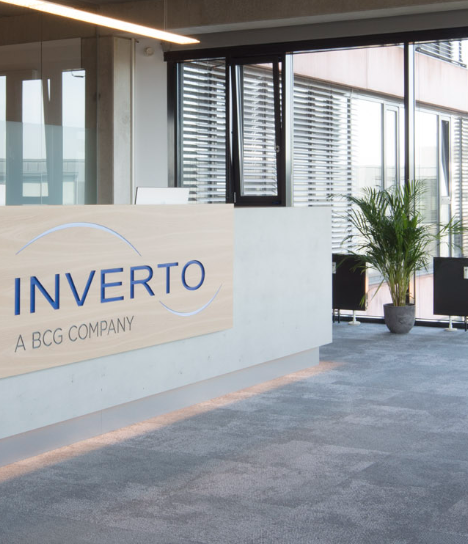INVERTO’s Raw Materials Study Reflects Slump in The Economy and Ongoing Trade Disputes
Cologne, December 11, 2019. The economic downturn and intensifying trade disputes are dominating themes in this year’s INVERTO Raw Materials Study. While shortages of raw materials and staff were at the top of the list of concerns for decision-makers last year, economic uncertainty and declining sales are threatening the bottom line this year. Procurement and supply chain management specialist INVERTO, a subsidiary of Boston Consulting Group, surveyed managing directors and procurement managers for the tenth year on their expectations and current practices in raw materials procurement.
The figures speak for themselves. The number of people fearing a drop in sales has more than doubled compared to the previous year (41% compared to 19%), but only half as many respondents as before are worried that they won’t be able to procure the raw materials they need (29% compared to 58%). 60% of respondents expect prices to fall moderately in view of easing tensions on the raw materials markets – with the exception of oil, gas, and electricity, which are expected to become even more expensive.
Despite the economic downturn, the forecasts are rather cautious, potentially due to trade disputes and political regulations. 46% of respondents think changes in legislation will impact raw materials prices, whereas 44% see punitive tariffs as a possible risk. More than 80% of companies believe trade barriers will be increasingly used as a political threat in the future.
Fluctuating Raw Materials Prices Massively Influencing Business Performance
For companies, this is turning out to be an enormous risk. 76% of respondents say that fluctuating raw materials prices are the biggest problem when it comes to procurement, and 71% say price changes are having a significant impact on their business performance.
70% of companies are agreeing long-term contracts to guard against the price rises, which are caused by protectionist measures. Over 60% of respondents are looking for new suppliers in other procurement countries or are shifting production volumes between their suppliers. At the same time, 36% are building up a bigger security stock in their warehouses.
Fewer Long-Term Contracts and More Flexible Price Clauses
It is clear that suppliers are more aware of the increased risks, which is reflected especially in long-term contracts. In almost 50% of transactions, the length of time for which a fixed price applies is now shorter. Just over half of all contracts (52%) contain flexible price clauses, allowing additional costs to be passed on to the buyer if raw material prices rise.
But not all respondents have been able to agree on fixed prices at all. 41% have accepted prices from the spot market for at least some of the raw materials they have needed in the past 12 months, even though only 16% actually planned to do so. This demonstrates the tension on the markets caused by economic developments and increasing political uncertainty.
Call For Politicians to Improve Conditions for Securing Raw Materials
Only 20% companies are currently examining whether they are being proactive enough in securing their supply of the raw materials they need, which can be achieved by acquiring interests in mines or other vertical integration. Companies need to procure a certain volume of raw materials to continue their operations.
So, it’s hardly surprising that so many study respondents are calling for political action to be taken. Nearly 59% of respondents believe that strategic solutions for securing the raw materials supply should be found at an international political level, such as the European Union, while 29% want their own country’s government to lay down better conditions for securing raw materials.
About the Raw Materials Study:
INVERTO polled 87 managing directors, board members, and procurement managers in Germany, Austria, Switzerland, and the UK. Around two-thirds of respondents work for industrial companies, with the remaining third working in retail, services, and construction. Almost 60% of the companies have an annual procurement volume worth over €100 million.
You can download a comprehensive report of the study results for free here.
